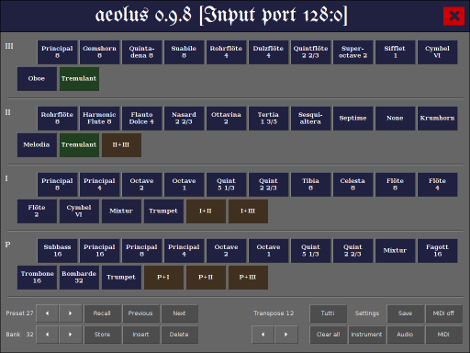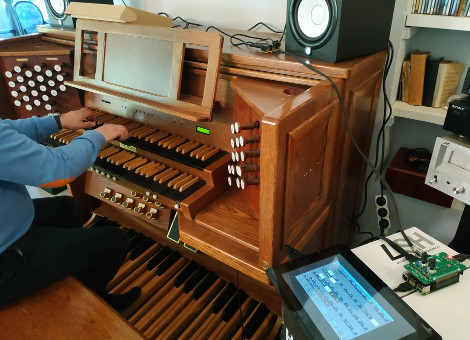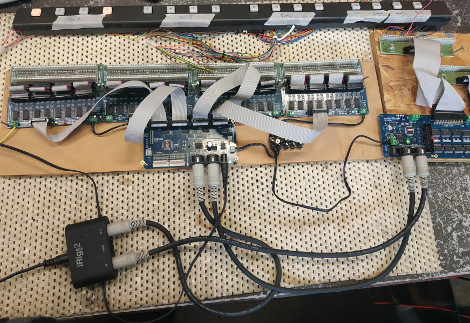About Organnery
What is the Organnery software?
The software part of Organnery is a customised Debian GNU/Linux image for ARM processors, including the Aeolus synthesiser and the applications it requires to run as a dedicated system.
Aeolus is open source software created by Fons Andriaensen. It was first presented at the Second Linux Audio Developers Conference in Karlsruhe, Germany in 2004.

Aeolus is not fixed on the definition of any particular pipe organ instrument. Instead, Aeolus is used with an instrument definition file referencing a collection of stops, which are saved to a USB memory stick for each organist. These binary files contain parameters for additive synthesis, one for each rank of pipes.
Organists can use the Aeolus synthesis editor to modify their individual set of stops for their exact requirements, so that the same organ console can accommodate many personalised styles. Personalised stops and presets for them can be used on multiple Organnery installations, for example a main instrument and a home practice console, simply by inserting the organist's own USB memory stick.
Aeolus can also support 'virtual divisions' which do not relate to a specific keyboard or row of stops in the interface, but can be defined as part of one or more other divisions and be mapped to keyboards there. A virtual division can have a separate MIDI channel for swell, tremulant speed and depth.
What hardware will I need?
The Raspberry Pi board has been chosen as the initial CPU because of its great development community, affordable price and worldwide availability. Should a Raspberry Pi fail, it is easy to obtain a replacement, and by the time that happens there is likely to be an improved model available.
Organnery can use any class-compliant USB sound card. Specialised I2S sound cards designed for the Raspberry Pi can also be used.

A standard HDMI monitor and mouse, or a touchscreen, can be used to control stops and presets while playing the instrument, or the physical buttons and switches of an existing console can be upgraded to send and receive MIDI by our field technicians.

If you are in the digital pipe organ building or repair business, and you would like to join our network of certified Organnery technicians, please contact us using the details below.
